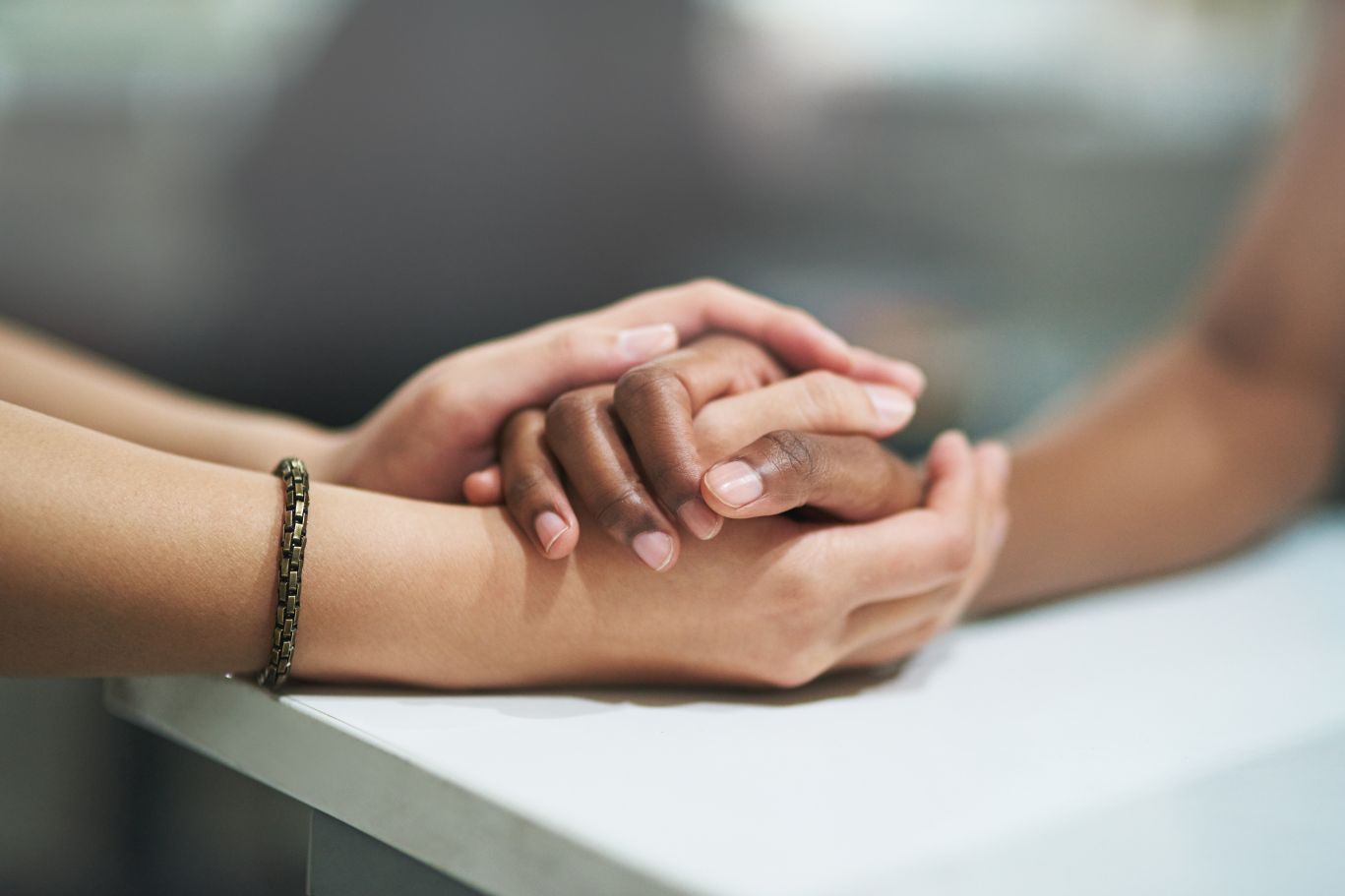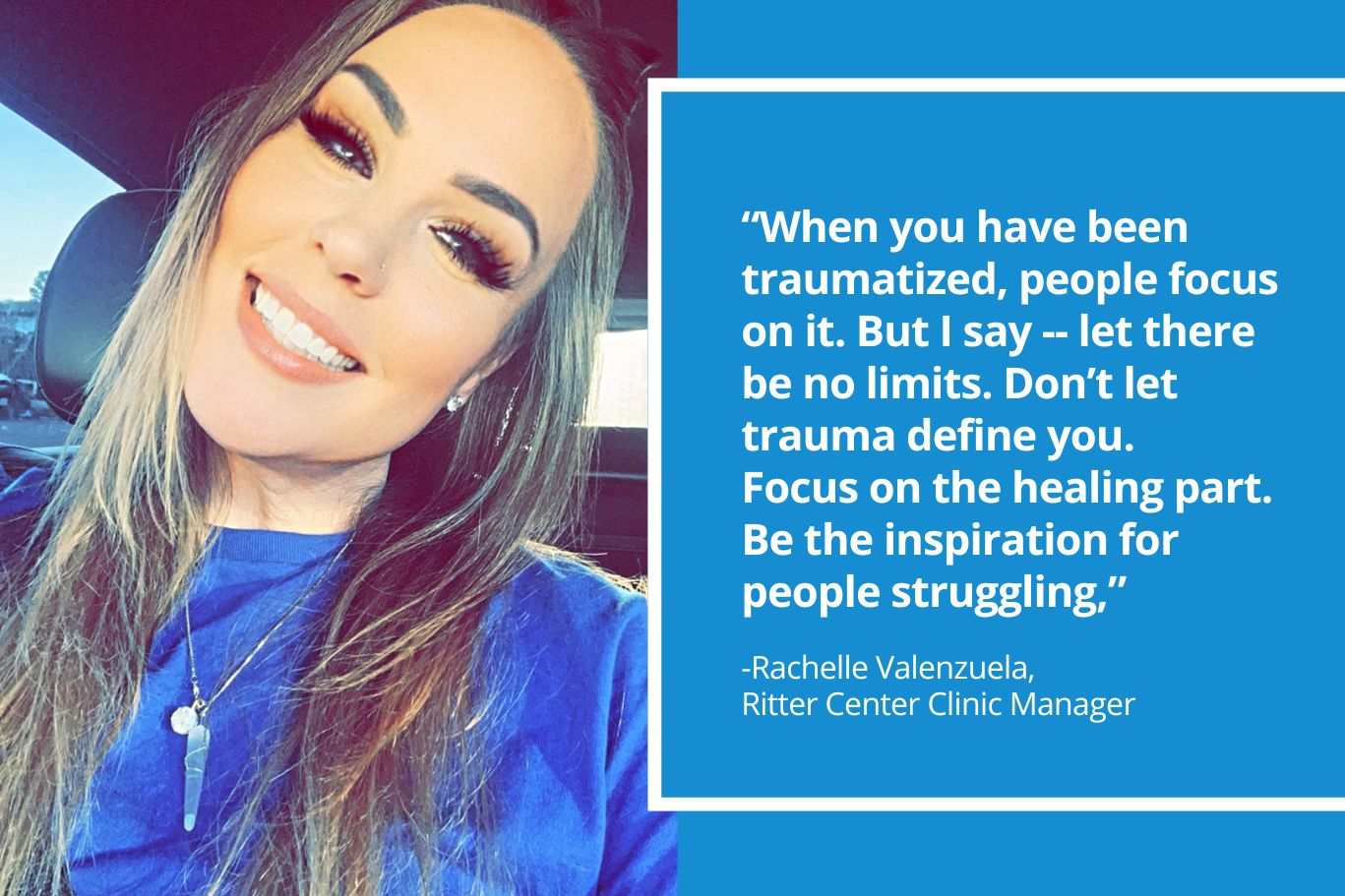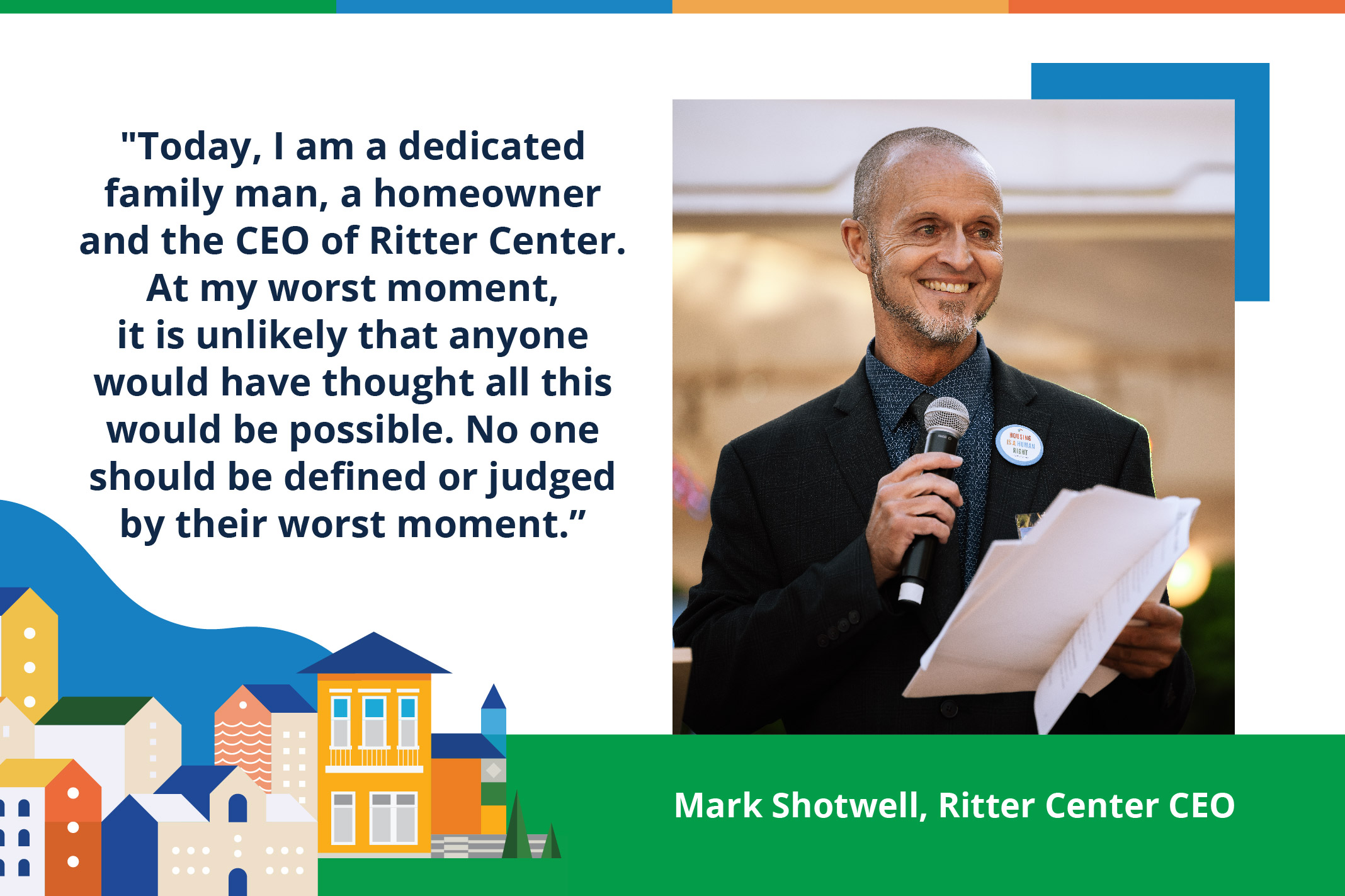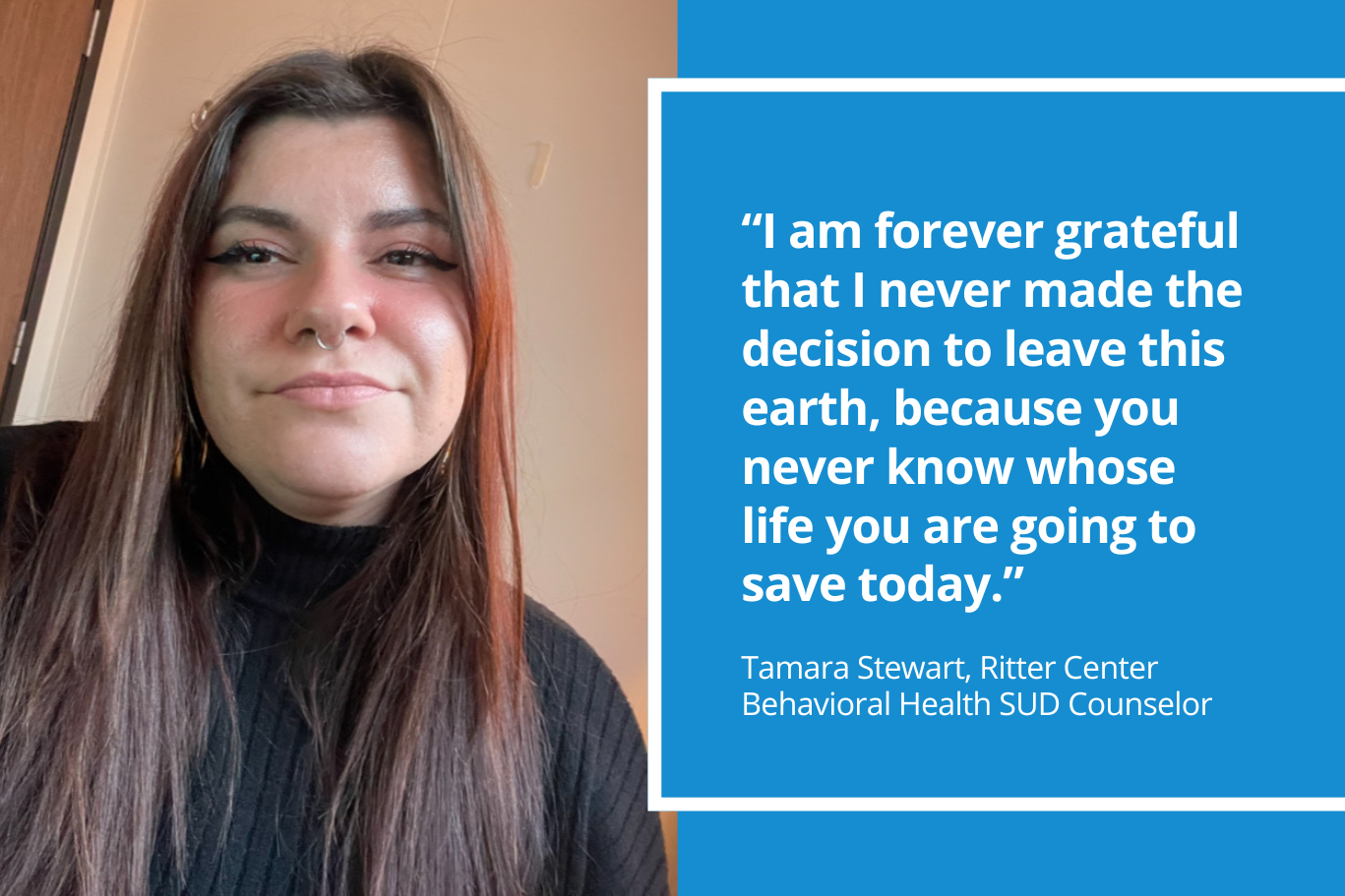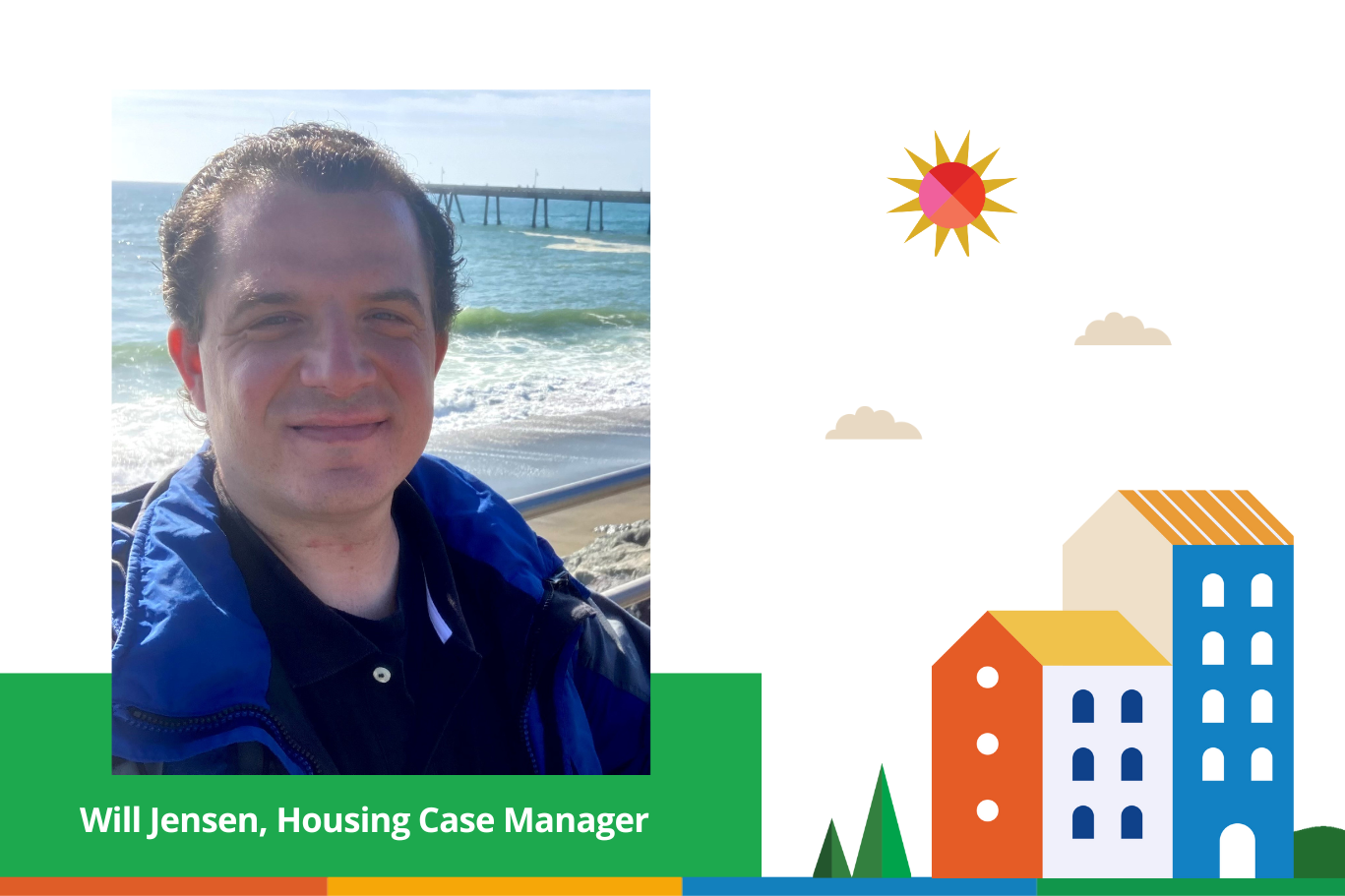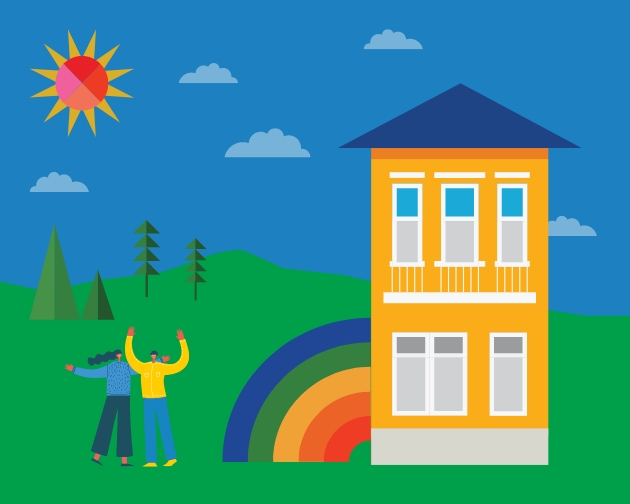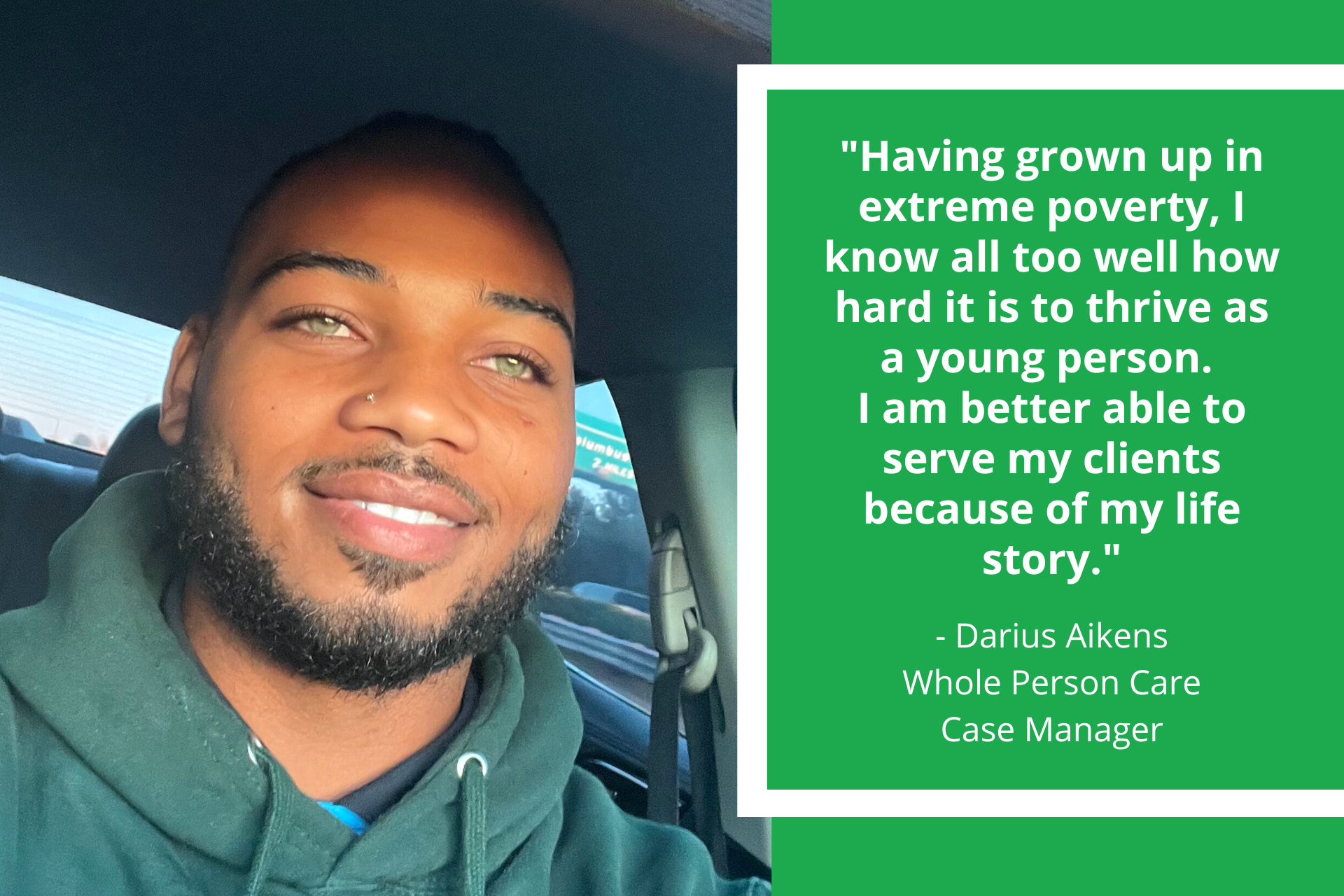
Homeless at 15, Darius now helps clients experiencing homelessness.
“When I was fifteen years old, I became homeless and this circumstance opened my eyes to how invisible people who experience homelessness and mental illness can feel. I made a commitment to use my experiences as a way to help others who may be in a similar or worse situation than me,” reflected Darius Aikens, Ritter Center’s new Whole Person Care Case Manager.
Darius grew up in the East Bay, and is the oldest of 8 children. He graduated from UCLA with a Bachelor’s degree in Gender Studies.
“I identify as a Black gay man and these identities are not all of who I am, but they are very important to how I experience the world, and to how the world experiences me. Most of my experience with social services comes from growing up without parents and having to rely on various agencies for basic resources. My mother had me when she was 15 years old and my dad was only 17. At that age, people don’t have the full skills required to be parents. On top of that, my mom continues to suffer from untreated bipolar disorder. She may have been present in the house physically, but she was emotionally unavailable to me. In addition, my sexuality was an issue even as far back as age 4. I was always living in ‘correction mode’ by trying to perform and present myself in a way that wouldn’t further strain the relationships in the home,” recalled Darius.
Another driving force in Darius’ ability to persevere and overcome multiple intense and challenging difficulties is his commitment to creating social change. His dad died at 27 of testicular cancer.
“This disease has a 95 percent survival rate if caught early. But he didn’t have insurance and his options were very limited as a result. He died three days before Christmas in 2008 and I know that this was due to the commodification of health care in America. His untimely and unnecessary death forced me to think about what’s happening in this country. People are dying every day because they don’t have health insurance,” said Darius.
“Originally, I thought that I wanted to become an oncologist. But I quickly realized that I can better serve the community through advocacy in public policy spaces. Having grown up in extreme poverty, I know all too well how hard it is to thrive as a young person. The shame. The guilt. I didn’t have enough money to go on field trips or engage in extracurricular activities in school. I would create false narratives about why I couldn’t participate in an effort to hide poverty. The same thing happened with hunger. I wouldn’t eat because I didn’t have food or money to buy food. I had to figure out what to say as an excuse for why I was not eating. That’s one more thing I can bring to this work at Ritter Center. I know what it is like to not be able to eat when I’m hungry. I know what those food hunger pains feel like,” recalled Darius.
“I have been on my own since age 14. My mom put me out of the house when I was just in 8th grade. I moved in with relatives but they couldn’t handle my mental health struggles. I had mood swings, untreated trauma, PTSD, and anxiety. It was too much. I got kicked out on Halloween in 10th grade. I slept in a car. I couch surfed. I have been paying rent since 11th grade. I have always taken care of myself. In fact, this is why I struggle with asking for help and can understand when our clients don’t want help right away,” said Darius.
“I also know what it is like to break cycles. I am the first in my family to graduate both high school and college. But I also know what it’s like to lack support and community to celebrate with at points in time. I didn’t even go to my college graduation in June because I felt like no one would come,” said Darius. “I know what those moments of hardship feel like. People experiencing homelessness are treated like second class citizens. They feel like they don’t have a choice or a voice. Society views these human beings as if they don’t matter or don’t know anything. But that’s not the case. In fact, there is no ‘look’ to homelessness. People were surprised at my being homeless. There may be a stereotype but there is no specific look.”
“I am better able to serve my clients because of my life story. I can talk with our clients and speak from actual reality. I have that lived experience. I know firsthand the struggle of mental health. I know what it is like to feel hopeless and depressed. I can channel this pain and harness it to empower my clients,” shared Darius.
“It’s also important for leaders and those in positions of power to recognize the value in one’s lived experience just as much, if not more, than one’s educational attainment. “The whole person care program manager, Dr. Frank Starks, saw the value in my lived experience and how it can help serve our clients. If it were not for Dr. Frank, I wouldn’t have been hired for this role.” said Darius
The Whole Person Care team at Ritter Center starts the work day with triage. The team discusses clients’ needs and begins to assess how to address the most pressing matters of the approximately 94 people in their care. The team goes to see 2-4 clients a day via home visits, at the encampments, jail, at sober living environments and more.
“We have conversations, we check in on meds, therapy, food, housing and other critical needs. We motivate those who are unhoused to go into supportive housing to cultivate the skills to live independently. We talk with those who might be waiting to get a voucher and see how they are doing in the shelter. We identify the resources that are available to them. We talk about behavioral health issues and the importance of seeking therapy to unpack unhealed trauma. We discuss methods for treating addictions and for those in jail, we talk about making a plan for once they get out. We take clients to doctors’ appointments and help with scheduling appointments. Some of these clients have no family, and no one to guide them. That lack of support can be a big piece of why they were homeless in the first place. That’s why they can feel so lonely and it is even heavier during the holidays. It reminds them just how lonely they are, and a lot of people lose hope. Many clients say we are their family. We might be the only ones that see them that week,” said Darius. “This cold weather is especially hard. It can cause relapses. One client ended up on the streets. They were drinking more alcohol because it was the only thing to keep them warm.”
Darius is looking forward to the day when Ritter Center has a new building where the team can collaborate together as one.
“It is difficult to not be able to see everyone I work with between the two office locations. I look forward to being able to easily see everyone I work with at Ritter Center. They are a great team and I want to be able to work under one roof together, to help our clients to reach a brighter future,” shared Darius.
